The Blue Economy is a recent economic development concept that is raised highly around the world and economists and governmental authorities are putting their attention on it seriously.
As a way to deliver sustainable ocean development initiatives, the concept ‘Blue Economy for Sustainable Development’ can assist a long way.
The concept had been accepted by the countries of the world and they are developing research methods and subsequent work procedures to utilize the fruit of the concept.
The terms ‘Blue Economy’ is getting re-defined on a regular basis as well.
Origin of Blue Economy
The concept of the Blue Economy originated at the Rio20+ conference in 2012. This association of ocean governance and economic development arose from the growing concern regarding the condition of the resource of the ocean and their management.
Blue economy for sustainable development includes the search for a justified conceptual framework as the basis for a new drive for sustainable ocean policy at a time of rapid international policy development in accordance with sustainable development goals.
The Blue Economy concept is not just a concept, rather it has very much practical relevance.
It has wide relevance, as the ocean and the common ownership and heritage of the high seas are counted as one of the final frontiers for humanity.
Blue Economy can also pave the way for achieving sustainable development to a new horizon. Blue economy for sustainable development is truly applicable in practice.
Related terms to Blue Economy
There’re some terms and concepts related to Blue Economy which is relevant and contributional to Blue Economy.
Ocean Economy
It’s the closest related term to Blue Economy and some organizations use the two terms interchangeably. However, these two terms portray two different concepts.
Ocean Economy just works with the use of ocean resources and its aim is to empower the economic system of the ocean.
However, Blue Economy goes beyond the boundaries of the ocean economy and focuses on the sustainability of the ocean for economic growth.
Hence, Blue Economy includes the ecological aspect of oceans along with economic aspects.
Green Economy
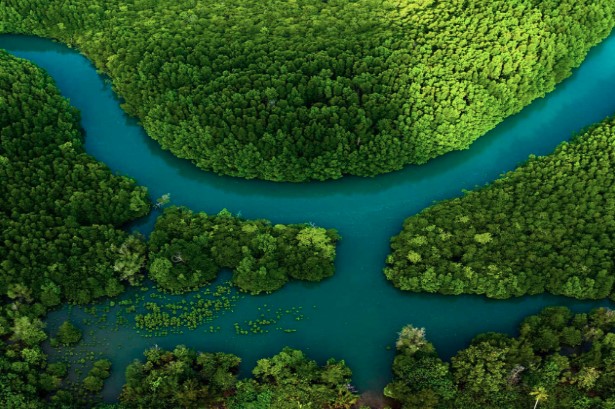
The Green Economy is the economic system that aims at minimizing the environmental pollution created due to the industrial process of the world and wants to achieve sustainable development without bringing a negative impact on the atmosphere.
As this economy is closely related to the ecological aspect, Blue Economy is part of the Green Economy.
During Rio+20 Summit in June 2012, a representative from Pacific small island states told that for them a Green Economy was in fact a Blue Economy.
Blue Growth
Blue growth means providing support to the growth of the maritime sector in a sustainable way.
To achieve the goals of the Europe 2020 strategy, European Union adopted the term as a combined maritime policy.
Blue Justice
Blue Justice is a vivid approach that aims to examine how coastal communities and small-scale fishermen are affected by the Blue Economy and Blue Growth initiatives taken by governments and various other organizations to promote the sustainable development of oceans.
Blue Justice is also enrooted in the green economy and United Nations Sustainable Goals.
In fact, small-scale fishing communities and fishery businesses are part of marine and inland water resources, as in some cases they have been using these resources for thousands of years.
Their historical rights are acknowledged in the blue Justice concept. Thus, it advocates for small-scale fisheries to prevent them from the pressure of big ocean users.
Additionally, they encourage the small water professionals to go with the standards to establish the principles of the Blue Economy and Blue Agenda.
The importance of Blue Economy for Sustainable Development
The oceans are the largest undivided part of the surface of the earth. In fact, it’s 71% of the total earth’s surface and 95% of the biosphere.
They are providing a huge part of the food and livelihood of the world population and are a very important means of global trade.
In addition, the marine and coastal environments are also important resources for the global tourism industry. Especially, it’s a very important part of eco-tourism.
Hydrocarbon is the main element of mineral resources and the seabed is a major source of this hydrocarbon.
Hence, with the advancements of exploration technologies like bio-prospecting and mining of the seabed, the exploration process in this area is expanding.
The sea also offers huge potential for renewable blue energy that can be produced utilizing wind, wave, tidal, thermal, and biomass resources.
If the resources of oceans are maintained or restored in a planned and scientific way, it can go a long way to meet sustainable development needs.
A representative from United Nations recently defined the Blue Economy as the economy that consists of a range of economic sectors and related policies that will decide whether the use of ocean resources is sustainable or not.
The challenge of the Blue Economy for sustainable development is understanding and managing the aspects of oceanic sustainability, which includes sustainable fisheries, ecosystem health, and preventing pollution.
Furthermore, the Blue Economy challenges us to realize the sustainable management of the resource of ocean. To accomplish this task, collaboration across borders and concerted efforts among nations is required. And it’s required on a scale that hasn’t been made possible ever before.
However, this is a tough task, and requires a long time and continuous effort, especially for Least Developed Countries (LDCs) and Small Island Developing States (SIDS) which have various limitations.
United Nations also notes that Blue Economy will aid in achieving the UN Sustainable Development Goals, especially goal number 14, which states that life is below water.
The Principles for a Blue Economy for sustainable development are stated in the report of the World Wildlife Fund.
It says For some Blue Economy is the use of the sea and its resources for sustainable economic development, while for others it’s just the economic activity in the maritime areas.
For them, it’s not a matter of whether it’s sustainable or not.
Conclusion
Though there’s no widely accepted definition of the term Blue economy, its high level of adoption is required for the expansion of policymaking and investment issues as well as for sustainable and eco-friendly development of water resources of the world.
Especially, ‘Blue Economy for Sustainable Development is very important for under-developed and developing countries besides the sea or oceans for the greater utilization of their resources.

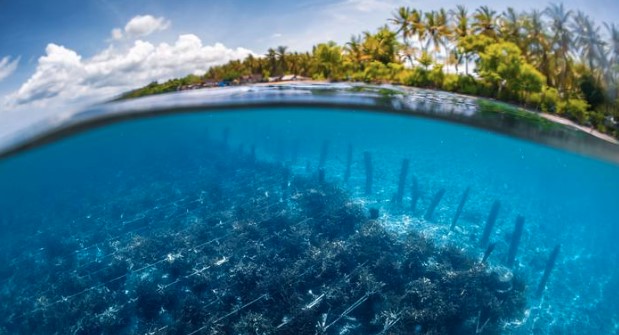


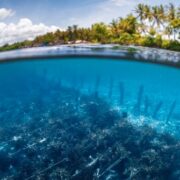
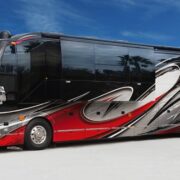
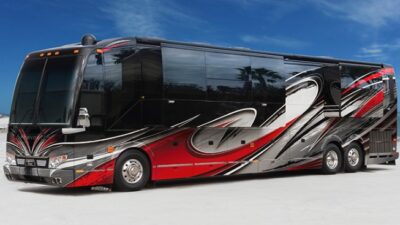




Comments